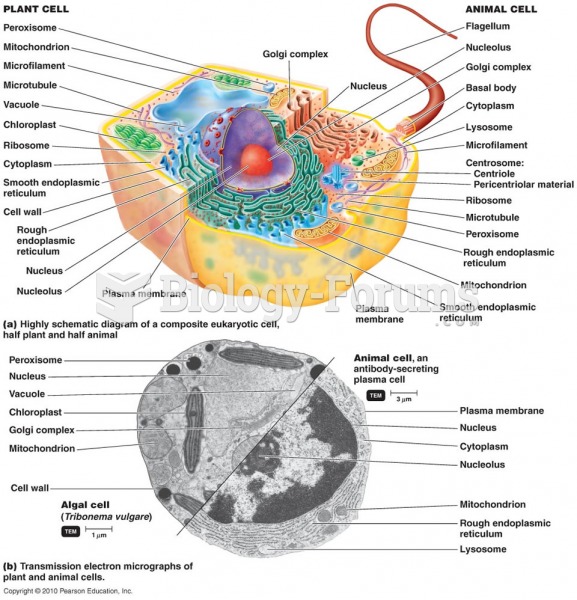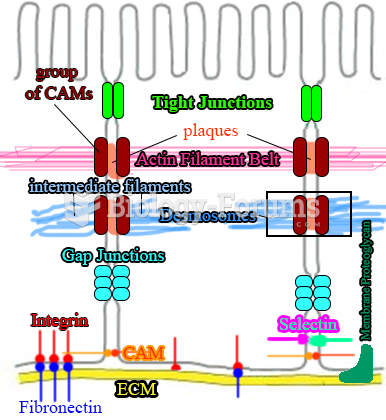|
|
|
There are more bacteria in your mouth than there are people in the world.
HIV testing reach is still limited. An estimated 40% of people with HIV (more than 14 million) remain undiagnosed and do not know their infection status.
Although the Roman numeral for the number 4 has always been taught to have been "IV," according to historians, the ancient Romans probably used "IIII" most of the time. This is partially backed up by the fact that early grandfather clocks displayed IIII for the number 4 instead of IV. Early clockmakers apparently thought that the IIII balanced out the VIII (used for the number 8) on the clock face and that it just looked better.
On average, someone in the United States has a stroke about every 40 seconds. This is about 795,000 people per year.
More than 150,000 Americans killed by cardiovascular disease are younger than the age of 65 years.







